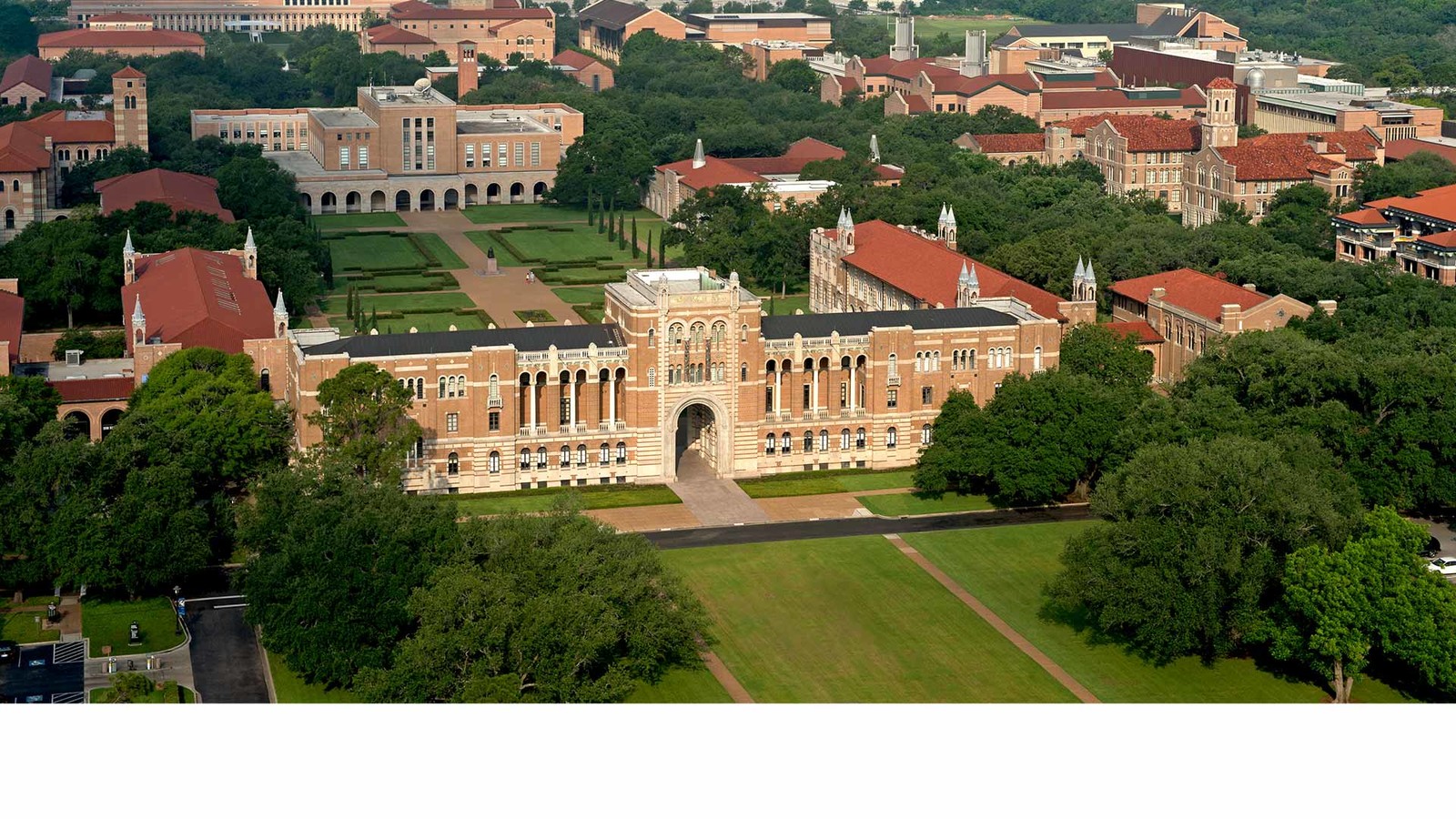Rice announces tuition for 2022-23 academic year

Rice University's undergraduate tuition for the 2022-23 school year will be $54,100, an increase of $2,030 over the current year. The total cost, including $15,000 for on-campus room and board and $863 in mandatory fees, will increase 3.5% to $69,963.
As in previous years, Rice will meet the full financial need of admitted students. The Rice Investment, the university's leading financial aid program for domestic students, offers eligible students with family incomes below $75,000 grant aid covering at least their full tuition, mandatory fees, room and board; students with family incomes between $75,000 and $140,000 receive grants covering at least full tuition; and students with family incomes between $140,000 and $200,000 receive grants covering at least half of their tuition. (The grants assume families have typical assets for their income levels.)
The university also does not require loans as part of financial aid requirements for students who receive need-based financial aid.
"High school students across the nation and around the world will soon be receiving the news they've been accepted to study at Rice," said President David Leebron.
"We chose this year to further enhance our financial aid to ensure that Rice will be affordable for the extraordinarily talented and diverse group of students we are admitting. We will continue to fulfill our fundamental commitment to make sure that all our students, whatever their family circumstances, will have access to the very finest higher education."
Rice frequently rates as one of the nation's best values among private higher education institutions because its tuition is generally lower than its peer research universities and its financial aid policies are regularly reviewed to ensure that its exceptional education remains affordable to students from a wide variety of cultural and economic backgrounds.
One of the goals of Rice's Vision for the Second Century, Second Decade (V2C2) is expanding access, diversity and inclusiveness on campus. That includes building on the university's ongoing efforts to recruit high-achieving students from under-resourced and middle-class families and assuring affordability by providing financial aid policies that allow them to experience the full range of educational opportunities at Rice.
"One of our highest priorities is to continue attracting a student body that's diverse in every dimension," said Reginald DesRoches, the Howard Hughes Provost at Rice. "We're proud that Rice gives talented students from all backgrounds, including low- and middle-income families, a chance to achieve educational excellence at one of the nation's finest private universities."
Graduate education costs for 2022-23 will vary for different programs. Tuition for doctoral students will rise 3.9% to $54,100. Tuition for graduate students in architecture will be $35,350 for those entering in fall 2022, $35,350 for those who entered in fall 2021, and $30,000 for those who entered in fall 2020 and prior years. Tuition for graduate students in music will be $30,100. Tuition for students in the professional master's programs will be $20,000 for religion, $39,000 for global affairs, $35,000 for human-computer interaction and human factors, $35,000 for industrial-organizational psychology, $40,000 for social policy evaluation, $39,000 for master's programs in natural sciences, $52,530 for most master's programs in engineering and $58,000 for energy economics.
The online master's in computer science and the online master's in data science will cost $1,667 per credit hour. Tuition will be $66,000 for students in the full-time MBA program at Rice's Jones Graduate School of Business. Tuition for other Jones School programs will be $57,000 for the Master of Accounting, $113,400 for the online MBA@Rice and the Evening MBA for Professionals, $120,000 for the Weekend MBA for Professionals and $135,000 for the Executive MBA.
"Rice opens doors of opportunity to students from all walks of life," said Yvonne Romero da Silva, Rice's vice president for enrollment. "We look forward to making those opportunities available for the next freshman class walking through the iconic sallyport of Lovett Hall."
Rice routinely ranks among the nation's top 20 universities as rated by U.S. News & World Report. Rice has a 6-to-1 undergraduate student-to-faculty ratio and a residential college system that supports students intellectually, emotionally and culturally throughout their academic careers. Developing close-knit, diverse college communities is a strong and long-standing campus tradition.
For more information on Rice, visit www.rice.edu. For information about financial aid programs and to apply, see www.futureowls.rice.edu.


